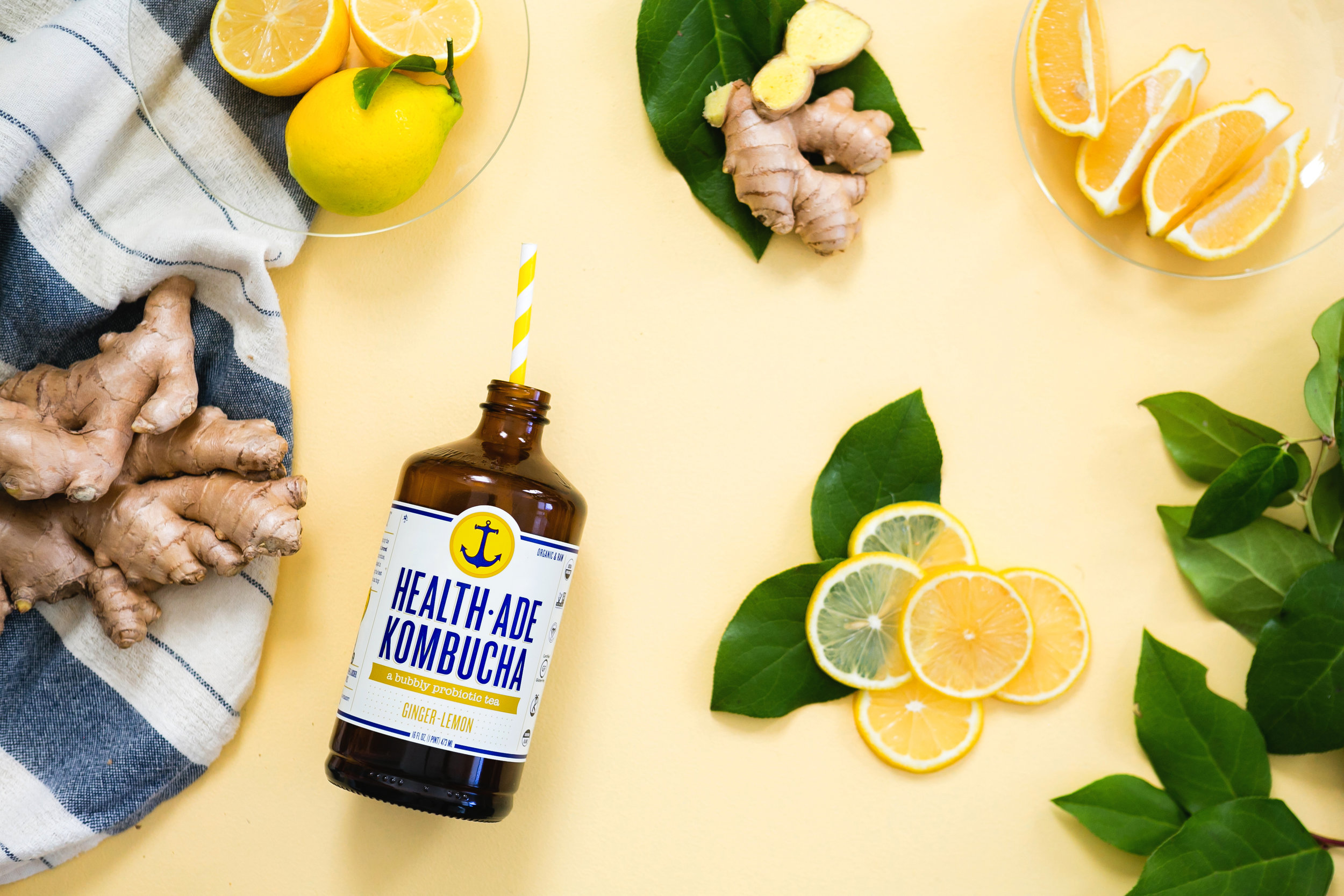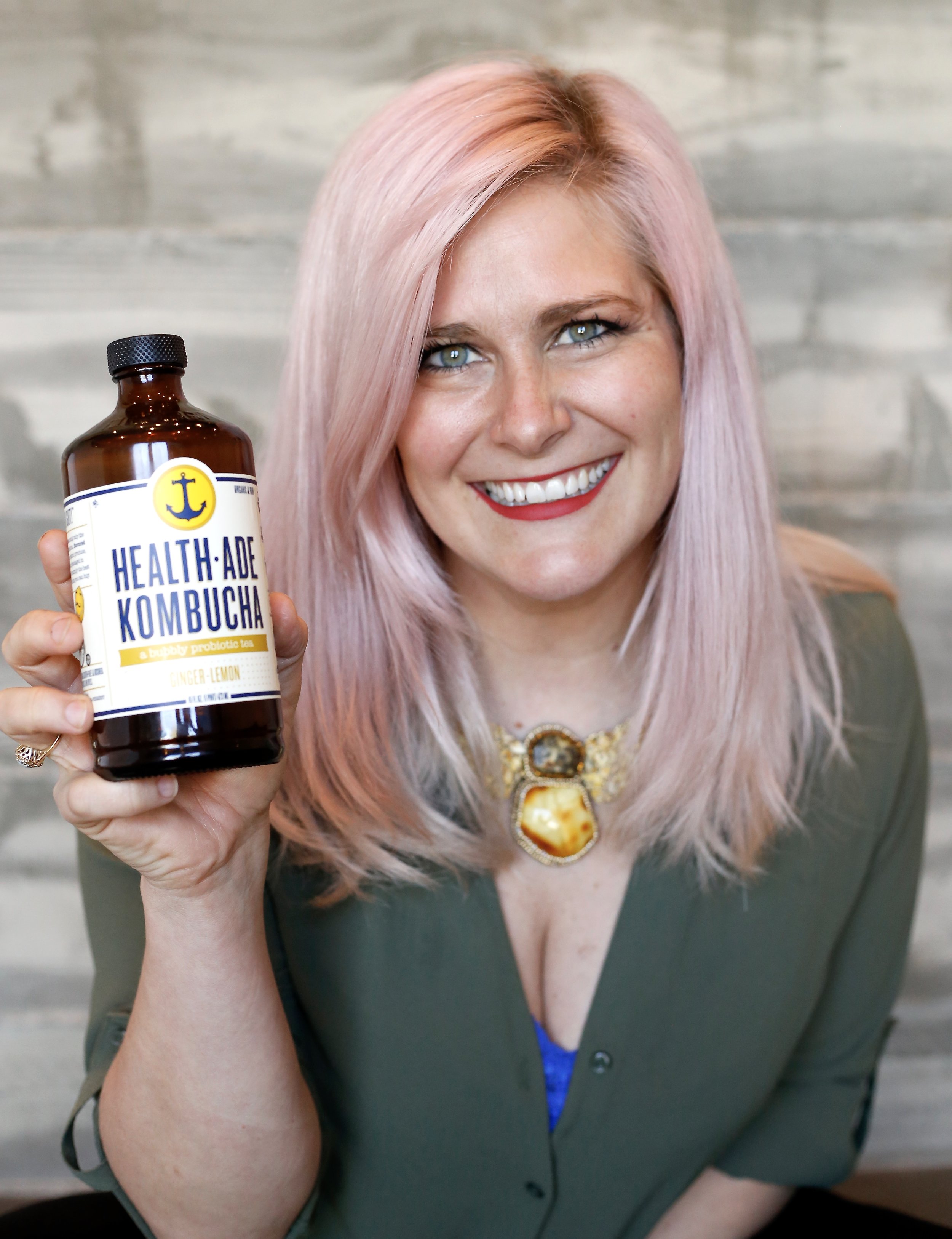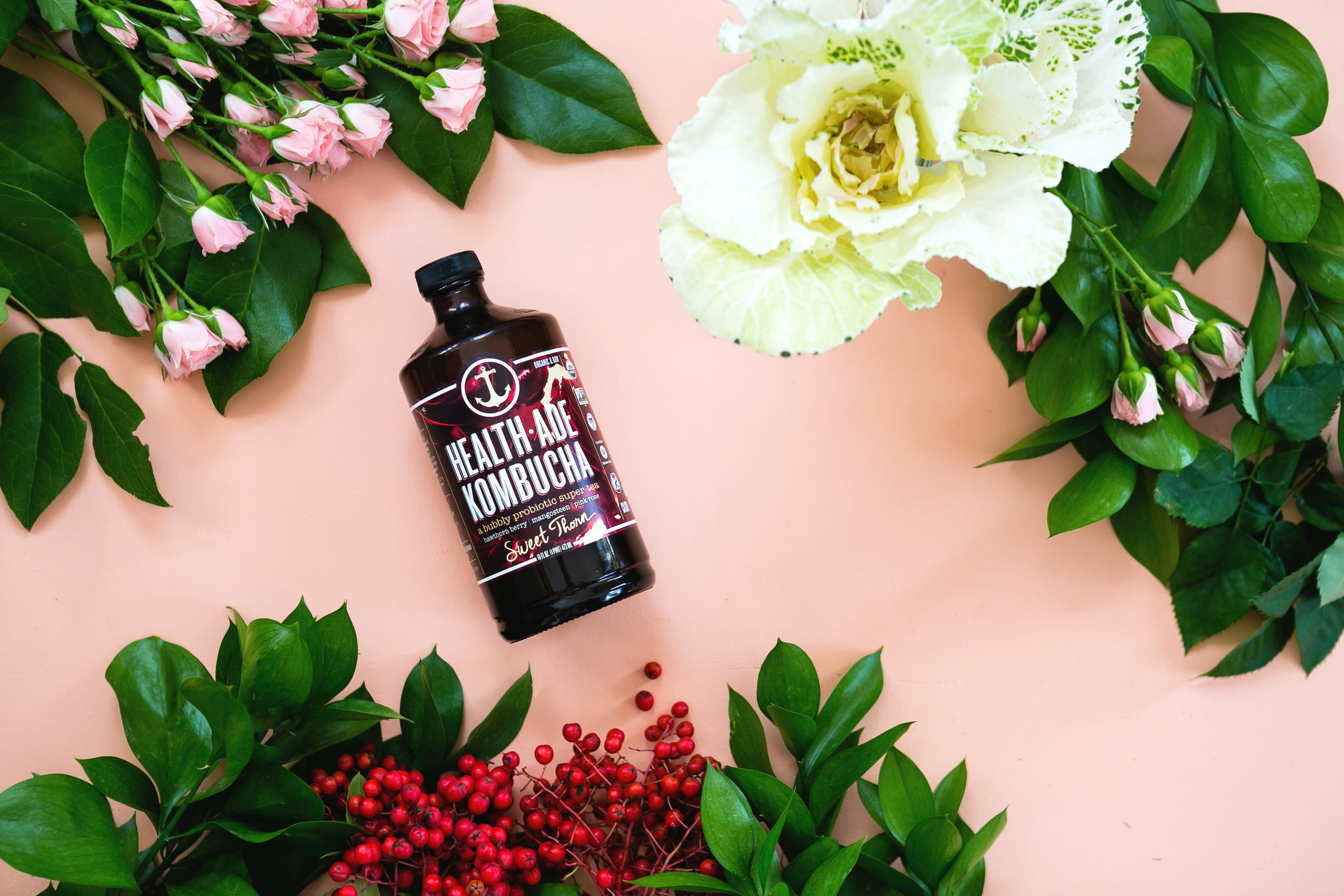Why This CEO Says You Have to Risk It All
Would you quit your job and risk it all for your business?
That’s what Daina Trout, CEO and co-founder of Health-Ade Kombucha, did in 2012. During graduate school at Tufts University for Nutrition, Trout discovered her love for holistic and fermented foods. But when she found herself climbing the corporate ladder of a pharmaceutical company in her late twenties, she felt her career going a little sour. And not in a healthy kombucha way.
Rather, Trout was coming home at night in tears from a corporate job that left her "feeling so unfulfilled." Though she was “moving up the corporate ladder and doing pretty well,” she explains, “I’m somebody who doesn’t even take Tylenol. So to work for a pharmaceutical company was weird. I was a number. It was very red-tapey and I was particularly rebellious. There were 100,000 employees there and I wanted to be a leader. I felt like I had it in me to do that.”
"I wanted to be a leader. I felt like I had it in me to do that.”
Tweet this.
Alongside her co-founders, husband, Justin, and BFF, Vanessa Dew, the now-CEO quit her job. She calls it her most important jump. “I had steady job, where I was moving up and getting awards, to start a kombucha company in the farmer’s market,” she laughs. At first she did attempt to split her time.
For about four months over the summer of 2012 the three co-founders tried working the farmer's market circuit on nights and weekends while keeping on with their day jobs. “I was completely driving myself into a brick wall," Trout says. "I was starting to lose my mind." Adding, "And there is no physical way I could do this if I had a kid.” Noting that at the time, she didn’t.
Right around November 2012 is when the trio knew they couldn’t continue at this pace, nor were they doing at good job at either. They weren't going to expand, “certainly not into Whole Foods,” Trout shares, if they didn't commit. So in December they shook hands, made a pact, and as of January 1, 2013 they were full time Health-Ade. “I remember that first day we showed up, January first and realized, ‘Oh shit, there is no paycheck coming. And we have no money.’ Maybe 600 dollars. It was really dumb in a lot of ways when you look back at it on paper. I don’t know if you have to do it like that, but for us, this is our story.”
"We’re not cautious people. If an account wants to carry Health-Ade I don’t see how I could say no. And that’s the beautiful thing about being able to paint your own canvas: We get to make the choice and we deal with the impact."
She says from the beginning they set the pace at turbo. "We’re not cautious people. If an account wants to carry Health-Ade I don’t see how I could say no. And that’s the beautiful thing about being able to paint your own canvas: we get to make the choice and we deal with the impact."
During the startup stage, it was high impact all the time. “Those next two years were the toughest," she says. "Physically tough. We were manufacturing and brewing kombucha. Who do you think was carrying the cases around the brewery? Delivering it to stores? Working the farmer’s markets? It was us. I was in the best shape of my life, but physically and emotionally taxed. There would be times I would take a walk, look up to the sky and look for any kind of sign that I had an ounce of sanity in me.”
Health-Ade is now a national brand and report being the fastest growing kombucha company in the U.S. Something Trout calls, “a crazy ride,” but for now she’s “on the horse and it’s exciting.” In 2016 they raised more than $7 million in venture funding from CAVU Venture Partners.
This year alone the company is seeing 4x growth, which many companies never see. “But it’s hard,” she says. “There is a misconception out there that it's glamorous,” Trout says of starting a business. "We had to dedicate our entire life. It’s almost like having a child,” shares Trout, who is now the mother of a two-year-old.
And yet, she says, there is a lot of positive. "I had to start this business. I had no choice in a way. It was a voice within telling me 'There is something bigger out there for you. You’re going to regret this your whole life.' Now I can make my own rules and it is so incredibly fulfilling at the end of the day, no matter how bad of a day I’ve had I never go to bed thinking ‘I don’t want tomorrow to come,’ or wake up the next morning thinking, ‘Oh my God, I don’t want to go to work.’”
The CEO says the closest thing to the entrepreneurship highs and lows is being mother for the first time. “I’m 36 and have had a lot of experiences, and nothing in my life has come even close to starting a business, except for having an infant."
"Nothing in my life has come even close to starting a business, except for having an infant.”
Tweet this.
Like motherhood, Trout says, "You eventually come to terms that you need to find your own way. Follow your instincts. Starting a business is very similar. I had to find confidence in myself and my decisions. Once you get the confidence, it’s over. It’s a complete confidence game. I think that’s why men traditionally have been better at this. But women are realizing, ‘Hey we’re fucking awesome too and we can do this. That’s all it is.”
Doing it they are. “This year we’re going to sell two million cases.” Considering five years ago the co-founders were making the product by hand with siphons in their tiny apartment closet, "lucky to make 60 cases per week," to sell “two million is insane and really cool." That means the pace hasn't slowed down, nor has the uncertainty. "We’re running this thing really fast right now. And it’s a discomfort zone.” All the time Trout says.
But it all comes back to the company's tag line: Follow Your Gut, which the CEO jokes everyone assumes is about the gut-positive health benefits of probiotics. While that's fitting, it’s also not the case.
To risk it all, Trout and her co-founders really had to trust their own instincts. “It has to do with how we started this business: you surrender to the fact that nobody is going to give you the answer. You hold the paintbrush. And the sooner you realize that, the more you can paint. Our whole lives we’ve always had someone to assist us with that paintbrush. A manager or a teacher, someone you can call on. Maybe you don’t realize that you’ve gone through life painting with assistance or painting by numbers. The reality is, starting a business is like a huge blank canvas where nobody knows what you want to paint, but you.”
Arianna Schioldager is Editor-in-Chief at Create & Cultivate. You can follow her @ariannawrotethis.
MORE FROM OUR BLOG












